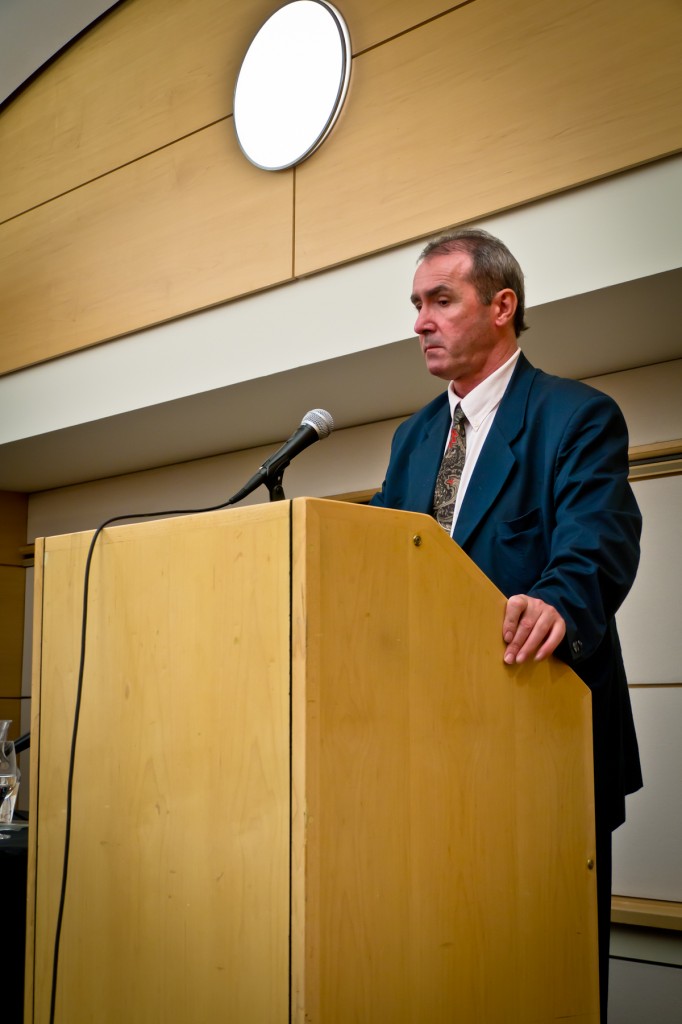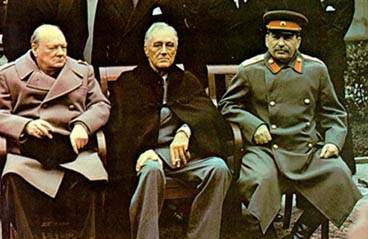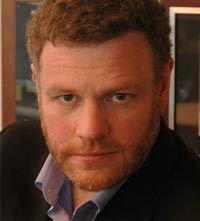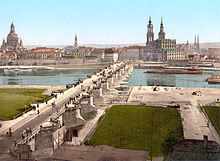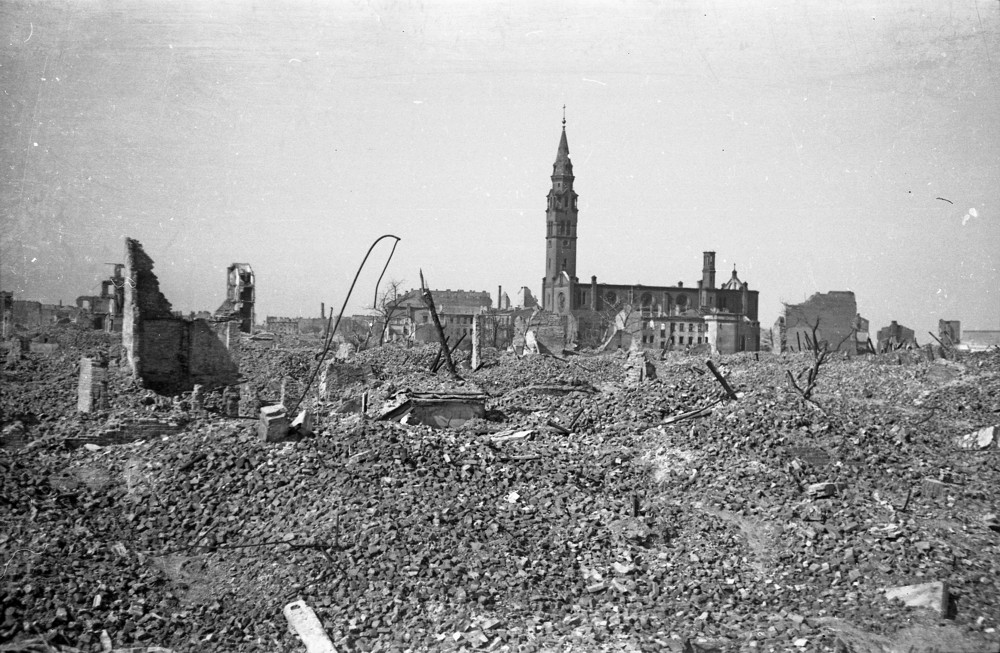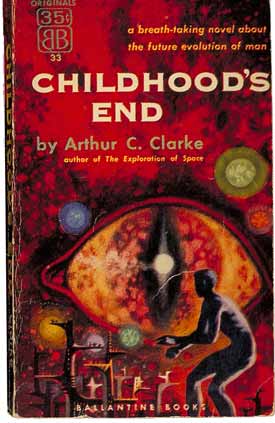Below, “Creepy History” by Jeffrey L. Thurston, an Amazon book review of Denying History: Who Says the Holocaust Never Happened and Why Do They Say It?, a 2002 book by Michael Shermer and Alex Grobman, and my abridgement of the long debate after Thurston’s review.
What caught my attention of the debate is that Michael Smith, one of the commenters who played devil’s advocate by questioning Holocaustianity, is not racialist but a typical liberal living in the Bay Area. Smith even endorses equality, feminism and, like many leftists, is extremely outraged by the treatment of the North American natives by the European colonizers.
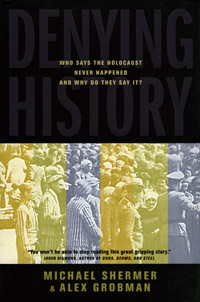
Thurston wrote:
This book delves into a creepy subject but as usual with the subject of Holocaust Denial it does not seek to refute the Holocaust Deniers—rather it tries (again as usual) to make the Deniers the subject. There is little head on argument or discussion of the supposedly outlandish claims of Deniers. This book should have been all about the historiography of the Holocaust—this would have gone a long way to actually rebutting the points that Deniers always make (points about actual numbers and mechanics and historical sources). Instead it simply shows us how Official History is made and why it can’t be wrong.
In real life skeptics (of all people) should be skeptical of official politicized history. My research into Joe Stalin has shown me how the Official Version is often based on bizarre historiography. In making the book mostly about the Deniers nothing convincing is offered to counter the revisionist aspect of Holocaust “Denial”: those who say the Holocaust’s numbers have been exaggerated and those who question its mechanics.
Many people lumped in with Deniers have honest questions. The Official Version of Holocaust and the world’s reaction to Holocaust Denial have evolved into a very strange mix of fear and well—denial! It is illegal to deny the Holocaust in many supposedly “free” Western nations. If the subject were so open and shut then why do there have to be laws protecting free minds from it?
The rather simple arguments that Deniers (or revisionists) make are difficult to rebut—period. The Official Version must stand—period! On pain of the Law! And the Holocaust has morphed into the main casus belli of WWII and now of all world history—the sufferings of a tiny fraction of WWII’s victims are the subject of much of popular WWII history in the United States. I challenge people who are true skeptics to delve into this subject with an open mind. You might be surprised as I was.
Davros said…
I live in Britain, where there are no Holocaust Denial Laws and, in general, Holocaust Denial is not really a big issue. Indeed, you will find a lot of sympathy for the idea that Holocaust Denial Laws do indeed stifle freedom of speech and give Holocaust Deniers ammunition to say they are being repressed and their human rights denied.
Michael Smith said…
I have to agree that the book encourages readers to believe that official history is objective, self-correcting, and infallible. What a crock! The authors conflate skepticism about mass gassing chambers with outright denial of the Holocaust. That’s a sleight-of-hand job. So-called “deniers” are skeptical about mass gassing chambers, not about violent treatment of Jews per se.
David Irving is not a Holocaust “Denier.” He’s appeared at some of their gatherings but does not consider himself one of them, nor do they accept him as one of their own.
Flat earthers can be shown a picture of the round earth to demonstrate the error of their ways. Where can one get a picture of a mass gassing chamber that was used by the Nazis?
In the Irving-Lipstadt case defense attorneys specifically refused to present an affirmative case for homicidal gassing chambers. If one had existed, they’d have presented it. But there are no photographs to present, no material remains of a homicidal gas chamber, no documents that directly refer to mass extermination by gas. It’s all “proven” by inferential speculation, the same way 9/11 Truthers “prove” that the twin towers were brought down by controlled explosives.
DWD said…
“The sufferings of a tiny fraction of WWII’s victims are the subject of much of popular WWII history in the United States.” – Jeffrey L. Thurston
I’d hardly consider at least 10% of the total death toll of the war (50-70 million) coming from European Jews (5.1-5.9 million, more than 70% of all European Jews killed) to be a tiny fraction and something to be glossed over. These were not civilian deaths by battlefield accidents, friendly fire or even incidents of soldiers gone wild in a frenzy of killing. This was systematic, planned destruction, cold and methodical.
Michael Smith said…
Systematic planned destruction is what modern war is all about. And civilians routinely do most of the dying. The Nazis are far from the only ones guilty on this count.
There is a lot of ground between “glossing over” the killing of Jews in WWII, and elevating Jewish deaths to the prime concern. Why are Jewish deaths so often considered the prime concern? Because of the (alleged) homicidal gas chambers, the (alleged) assembly line of death, the (alleged) motive of total extermination. But all that has been called into question because of the lack of corroborating physical and documentary evidence, and Denying History fails to acknowledge that fact. Smearing the “Deniers” as racists is just a diversion.
Romeo said…
This is probably a dead thread, but I thought that I would ask. If the Holocaust never happened where did everyone go? How do you explain the disappearance of 6 million people? Some people say it was less that 6 million. Fine. How do you explain the disappearance of 4 million, 2 million, or even 500,000 people? Where did they all go? Or are all these people in on some grand conspiracy?
Michael Smith said…
Holocaust revisionism is basically related to two main questions: the gas chambers and the six million. So the question isn’t really “Did the Holocaust happen?,” but rather, “Were there homicidal gas chambers?” and “How many Jews perished at the hands of the Nazis?” No one denies outright that systematic and murderous brutality occurred, which is what is implied in the statement “the Holocaust didn’t happen.”
There is lots of dispute about the numbers. Many would not accept your assumption that millions are unaccounted for. Yad Vashem Holocaust Memorial says it has the names of 3 million Jews who died in Europe (from all causes) during WWII. What about the other three million? In any case, how does it follow that if Jews are missing they must have been systematically exterminated in Nazi gas chambers? There are many ways to die, especially in a war zone.
Regarding the Holocaust as “the worst thing that ever happened” is directly related to the gas chamber question. If it were widely accepted that there were no homicidal gas chambers in WWII, there would be no credibility whatsoever to the idea that the Holocaust was the worst thing ever.
Davros said…
Ok, it’s quite clear that most of you haven’t actually read the book you are discussing. You keep making the same points all deniers make about the gas chambers but completely ignore many other aspects of the holocaust such as the activities of the Einsatzgruppen: mobile killing squads that killed over one million people. We know how many they killed because they documented it.
Oh, and about the numbers of people The Yad Vashem Archives (see here [link]). Say they currently have approximately 3.8 million people registered as murdered. I’m sure it was an innocent mistake but you accidentally left out 800,000 people. Furthermore, as I’m sure you know, the total number of dead is an estimate, not a certain number. There is a brief overview of the numbers here (link).
Finally about this “how does it follow that if Jews are missing they must have been systematically exterminated in Nazi gas chambers?” As already established, not all Jews were killed in camps. The evidence of atrocities at the camp liberations, the testimonies at Nuremberg, the reports coming out from Poland and Eastern Europe during and after the war, the information held in the German and Russian archives all point to a systematic destruction of Jews and others such as Roma, homosexuals, political activists, etc.
The main point that is made in the book that you clearly have not read is that there is a vast amount of evidence that converges on the inescapable conclusion that there was a widespread coordinated attempt to eradicate millions of people during the course of the Second World War.
Anybody attempting to deny this would have to have a similarly strong case that shows the evidence we have points inescapably to another conclusion. So far, none have been brought forward.
I confidently expect there never will be.
Michael Smith said…
I’ve read the book. I criticize it not out of ignorance but because it’s a bad book, based on the same “cumulative proof” reasoning as David Ray Griffin uses to establish that the Twin Towers were brought down by pre-planted explosives on 9/11. When you say that the evidence “converges” on the preferred conclusion, you are using Griffin-style reasoning. Evidence should logically require a conclusion, not merely “converge” on it.
Yad Vashem is still 2.2 million names short of the widely accepted 6 million figure, and this, only sixty-five years after the end of the war? The last time I checked they were 3 million names short, but the point remains that they haven’t got confirmation of six million Jews killed in WWII, much less in “the Holocaust,” however that clumsy term is interpreted. The Einsatzgruppen existed, but the “gas vans” thesis is disputed.
“Systematic destruction” is what war is all about. Nobody denies that systematic destruction occurred at the hands of the Nazis in WWII. The issue is whether poison gas was used to exterminate 6 million Jews in accordance with a deliberate Nazi intention to produce this result using an industrial assembly-line of death. The latter thesis is very much disputed.
“Widespread attempt to eradicate millions of people during the course of the Second World War” doesn’t mean very much. Obviously, the Allies and the Axis both engaged in widespread atrocities, killing tens of millions of people. But that obvious fact carries with it no implications about the existence or non-existence of homicidal gas chambers.
Romeo said…
So for the deniers: my first question was if there was no Holocaust what happened to all the people? Didn’t get any convincing answers on that one. The only response that I got was that it was only 3 million. As if that was okay. “Oh they only killed 3 million people.”
Why are deniers denying the gas chambers? There are pictures of these gas chambers. There are records for purchases of Zyklon B. What is there to deny about the gas chambers?
Michael Smith said…
You don’t read very carefully. I didn’t say “it was only 3 million.” I said Yad Vashem (last time I checked) only had three million names of Jews who died in Europe during WWII. Given that the commonly accepted figure for “the Holocaust” is six million, I asked, what about the other half? And I never said it was OK to kill even one person, let alone three million.
What happened to all the people is a question that can’t be answered unless we know to which actual people the question refers. Without claiming to know what the exact figures are, my own guess is that large numbers of Jews perished in the camps as a result of the collapse of German power on the Eastern front. This need not imply an extermination plot, much less one that employed homicidal gas chambers. Revisionists question the existence of homicidal gas chambers because their presumed existence is based on inferential speculation of the David Ray Griffin variety.
You are mistaken. There are no photographs of homicidal gas chambers said to have been employed by the Nazis to kill upwards of two thousand Jews at a time. Records for the purchase of Zyklon B don’t prove for what purpose the Zyklon B was used. Both sides in the Holocaust non-debate agree that Zyklon B was used for fumigation purposes.
There is nothing to deny in the homicidal gas chambers, but there is plenty to question. Organized Jewry clearly puts a higher value on Jewish life than that of any other group. And the gas chamber/mass extermination story has been a major form of moral capital for Israel for decades.
Flim Buff said…
No documents that refer to mass extermination by gas? No material remains of gas chambers? Well, so far you are 0 for 2 in the truth and accuracy department.
Michael Smith said…
You omitted a crucial word. This is what I wrote: “no documents that directly refer to mass extermination by gas.” The Nazis made no direct reference to extermination by gas. The theory is that they employed euphemisms to disguise the extermination program, which was not planned in advance nor organized by any central agency. The Nazis were telepathic improvisers guided by no blueprint and supported by no budget for a plan of extermination involving millions of victims.
There are material remains for small fumigation chambers, but not for the homicidal gas chambers allegedly used to gas 2000 Jews at a time. Show me a picture of one of those.
Davros said…
Michael,
A few points I want to raise about your arguments:
“There are material remains for small fumigation chambers, but not for the homicidal gas chambers allegedly used to gas 2000 Jews at a time. Show me a picture of one of those.”
Here you go: [photo can be seen: here]
Here are the material remains of one of the only 2 gas chambers that are known to have been able to hold up to 2000 people at a time. As you probably know, these chambers were blown up by the SS On January 20, 1945.
Here is a much better preserved chamber from the book you claim to have read. Alongside the pictures are reasons why we know it’s a killing gas chamber and not a delousing facility. One of those is also shown for comparison [Davros added a link to the reviewed book that presently only redirects to the main page of the book].
“When you say that the evidence ‘converges’ on the preferred conclusion, you are using Griffin-style reasoning. Evidence should logically require a conclusion, not merely ‘converge’ on it.”
Convergence was certainly good enough for Judge Charles Gray when dismissing the Irving v. Lipstadt libel case:
“Having considered the various arguments advanced by Irving to assail the effect of the convergent evidence relied on by the Defendants, it is my conclusion that no objective, fair-minded historian would have serious cause to doubt that there were gas chambers at Auschwitz and that they were operated on a substantial scale to kill hundreds of thousands of Jews” (from Section 13 of the Judgment of the case).
It’s interesting that you claim that the authors use the same method of “cumulative proof” that David Ray Griffin uses. Now, you may have an advantage over me here—I’ve only read one of his books, A New Pearl Harbor. In that he has no theory to converge the evidence on. He merely states that his book is an attempt to clarify the dire need for an in-depth investigation into the events of the 11th of September whilst relying on evidence based on books by other Truthers. He looks at competing theories but sides with none of them nor provides his own.
You stated that “Yad Vashem is still 2.2 million names short of the widely accepted 6 million figure.” As you should know from the book you claim to have read, the six million number is arrived at using a variety of means as described on pages 176-178. Briefly, the addition method— totaling up the numbers known to have been killed, subtraction, taking pre-war demographics and subtracting emigrations, the numbers liberated from camps and the numbers left in areas after the war. Finally, recapitulation cross-checking these numbers.
The methods documented vary between 4.5 million and 6.2. The lower figure is from Reitlinger 1953, the highest is Benz 1991. “Moreover, as we can see in the most recent figures—those from Benz—revisions, based on more accurate data, have increased, rather than decreased, the estimate”, p. 178.
The method employed by Yad Vashem is not a systematic review of demographic data, rather a collation of victims names and stories—many submitted by survivors on their behalf.
In fact they state very clearly on their website that not everyone will be accounted for. This from their FAQ:
When will there be 6,000,000 names in the database?
Never. Some Jews left no trace. They were murdered with their entire families, so there was no one left to submit pages of testimony for them; or they left no documentary traces; or the traces they left were destroyed, either during the war, or afterwards. In the 1960s and 1970s, archivists sometimes burned entire collections of what were perceived, unfortunately, as documents with no lasting value.
You then go on to state “The Einsatzgruppen existed, but the “gas vans” thesis is disputed.” This is not even an argument. What part of the Holocaust is not disputed by someone? It’s interesting you mention the gas vans when mass shootings were much more common. See pages 182-186 of the book you claim to have read.
You seem to be fixated on gassings. A quote from Gitta Sereny on page 182 puts this into context:
“[F]or most of the world, including most Jews, the term ‘Final Solution’ has mainly or entirely been identified with gas chambers in occupied Poland, or even more narrowly, those in Auschwitz. For almost half a century, the murder by shooting of between one and a half million and two million Jews in the occupied Soviet territories has somehow been treated differently. Grotesquely, more often than not, these murders by shooting have been neatly classified as ‘acts of war,’ an extraordinary misconstruction of history which plays straight into the hands of revisionists.”
Which I think neatly sums up what you’re trying to do here when you state:
“Obviously, the Allies and the Axis both engaged in widespread atrocities, killing tens of millions of people. But that obvious fact carries with it no implications about the existence or non-existence of homicidal gas chambers.”
You also make this statement:
“The issue is whether poison gas was used to exterminate 6 million Jews in accordance with a deliberate Nazi intention to produce this result using an industrial assembly-line of death.”
The book explicitly states (p. 128) that approximately 3,062,000 people died in gas chambers. You appear to ignore the approximately 50% of people killed by other means. I can only think you are trying to assert the “No gas chambers, no holocaust” argument.
You may well have read the book but you seem to have ignored most of the evidence presented in it and bring none to support any of your arguments when you attempt to refute it.
Michael Smith said…
Those photos would only persuade someone who already believes in the homicidal gas chamber thesis. The sleight-of-hand of interchangeably referring to cremation ovens and gas chambers is particularly unconvincing. Cremation ovens do not carry with them implications of murder.
Charles Gray did indeed fall for the convergence style of reasoning. That in itself proves nothing, except perhaps his gullibility. (But he also said there is little real evidence for the homicidal gas chambers, which is why speculative reasoning is said to be necessary.) I’ve reviewed the Irving-Lipstadt case in an article on my blog: “Must We Loathe David Irving?” At legalienate.blogspot.com I’ve also reviewed the book we are here discussing. See “Gas Chambers, 911, and the Perils of Orthodoxy” on the same blog.
In Griffin’s Pearl Harbor book he outlines the difference between a convergence theory and a deductive proof. I think it’s in the beginning of the book. An indirect proof is useful for Grand Juries to decide whether there is a preponderance of evidence against someone with which to bring them to trial. However, once at trial, a higher standard of proof is needed to convict someone. That higher standard of proof is lacking in the Holocaust story vis-à-vis homicidal gas chambers.
There’s plenty of room for doubt about the six million figure, which your wide variation in educated guesses confirms.
I’ve never denied the shootings on the Eastern front. I merely mentioned in passing that revisionists question the gas vans thesis, as they do. However, mass shootings are common in Euro American history, extermination by gas is not. It is the gassing claim that gives the Holocaust its alleged uniqueness.
It wasn’t revisionists who invented the homicidal gassing claim. If this claim has led to an unfair de-emphasis on mass shootings in the East, it’s the fault of the proponents of Holocaust orthodoxy. But again, mass shootings are common. Look at what happened to the indigenous nations of North America, for example, also often misdescribed as “acts of war”—far more thorough destruction than what happened to the Jews of Europe, but there are no Holocaust memorials to them. Quite the contrary. It’s buried history and most of it is probably irrecoverable.
You seem fixated on regarding mass murder by the Allies as inherently good because the Axis powers were inherently bad. But liquidating whole cities with firebombs and atomizing hundreds of thousands of Japanese are no more “acts of war” than wholesale shootings of civilians by the Nazis. Get rid of the double standard if you want to understand history. Michael Shermer can’t do this, unfortunately.
I’m not ignoring the Jews who were killed by various other means, merely pointing out that the argument with the revisionists centers on the homicidal gas chamber question and the six million figure.
I’ve read the Shermer book and commented on its faulty approach at some length. He’s a true-believer in the-Allies-are-inherently-good approach to history, and it shows. He’s a cheerleader.
Marius Rowell said…
The “You’re as bad as I am” defense wouldn’t keep you off death row in any US court, even though you are perfectly right in pointing out how the extermination of native North and South Americans by European invaders is equally unacceptable. White Europeans really deserve the bad rap they get from the rest of the world, and I’m speaking as one of those white Europeans.
Michael Smith said…
It’s the job of historians to determine the facts and account for them, not denounce atrocities. This is very difficult to do when relevant historical documents derive from an occupying army intent on convicting its defeated enemy, and criminal penalties attached to those who publicly challenge the military court’s findings. This is what happened in post-WWII Germany.
It’s unacceptable to kill civilians under any circumstances, but all sides violated this moral standard during WWII. Why pretend that only the Nazis did?
The mass gassing thesis has never been properly substantiated. There is no forensic evidence of mass homicidal gassing chambers, no open discussion of extermination by gas in the Nazi archives, and no extermination order. The theory is that a bunch of telepathic improvisers spontaneously annihilated millions of Jews in gas chambers (whose physical remains somehow vanished into thin air).
Obviously, many atrocities were committed against Jews during WWII. But that does not necessarily mean they were physically exterminated in gas chambers.
An excellent treatment of the whole subject, drawing on revisionist and establishment Holocaust scholars, is Samuel Crowell’s The Gas Chamber of Sherlock Holmes, just published by Nine Banded Books.
Definitely there is a religious ideology at work here—questioning the official view of the Holocaust is quite literally blasphemous in quite a few European countries.
K. Grimm said…
I have followed this fascinating discussion all the way from the original book review and it is obvious that the subject generates heated emotion. One thing does stand out clearly though. While those in support of Mr. Thurston are posting detailed and reasoned arguments, his opponents, with the notable exception of Davros, are responding emotionally often with sneering comments that add nothing useful to the discussion and fail to address the points being raised.
That being said, I am not convinced by Mr. Thurston’s assertion that the Holocaust has been over emphasized in order to justify modern Israel’s actions in defense of itself. I have no sympathy with those anti-Zionists who wish to portray Israel as some sort of criminal nation. Also, I still believe, until I see substantial and convincing evidence to the contrary, that the Nazis did engage in industrial-scale extermination of despised peoples (mostly Jews), whether by poison gas or not.
The treatment of the Holocaust as “the most evil act in the history of the world” perpetrated by “the most evil regime in the history of the world” led by “the most evil man in the history of the world” is a narrative that suits many vested interests other than Israel. These include those on the Left who wish to divert attention from the appalling atrocities committed by communist revolutionaries the world over. By defining Nazism as “extreme right wing” we obscure the fact that the Nazi movement was in fact both anti-capitalist and socialist. Nazism in the popular mind has become the opposite of socialism rather than a particular variety of socialism bound up with German nationalism. This “extreme right wing” definition also has the useful function of placing a toxic warning on all right wing politics—i.e. don’t take the road to the right because it will ultimately lead to genocide.
Then, of course, there is the question of the murderous brutality of the Allies aerial bombing strategy. This is more easily justified when it is portrayed as a desperate but necessary method to help bring down “the most evil regime in the history of the world.” As for the civilians targeted for slaughter, well they did put into power “the most evil man in the history of the world” and supported “the most evil regime in the history of the world” so they had a price to pay.
Michael Smith said…
Israel is not acting in defense of itself. It is attacking. It always has.
The Holocaust obsession has certainly been important political capital for Israel, whether or not one thinks it is “overemphasized” to justify specific policies.
Israel is a criminal nation. Reserving rights and rewards for Jews and “redeeming” the land by robbing it from its indigenous owners and giving it to Jews “ingathering” from all over the world is not merely incredibly unjust, but frankly insane.
“I still believe, until I see substantial and convincing evidence to the contrary, that the Nazis did engage in industrial scale extermination of despised peoples (mostly Jews)”
This is backwards. A rational man does not believe until he sees evidence to substantiate what he is asked to believe. He doesn’t adopt a belief lacking in such evidence and then demand that others dissuade him from believing it. The important question is always the state of the evidence, not our subjective preferences.
The Nazis engaged in wholesale killing. All sides did in WWII. But whether these killings were acts determined more by the state of war than by Nazi ideology is a debatable question. I don’t see anything to be gained by insisting that debate be stifled in favor of a preferred conclusion.
Appalling atrocities of communists? There is as much shrieking hysteria on that topic as there is on the alleged Nazi gas chambers. We need to develop the capacity to see that all kinds of governments engage in atrocities, not just Nazis and Communists. And we need to debunk the hysterical treatments that insist that enemies of our favored states are composed exclusively of bloodthirsty killers that live only to skewer babies on swords and throw grandmothers to the sharks. Atrocities abound, but the scale and nature of the killing is often suspect, and the idea that “democratic” states don’t engage in the most hideous atrocities is sheer bunk.
Your justification for mass killing of German civilians is the standard one. But it’s unconvincing. From the standpoint of the indigenous peoples of North America, U.S. citizens are as guilty of unforgivable atrocities as the German people were under Hitler. So that means it would be OK to engage in saturation bombing of U.S. cities?
K. Grimm said…
If Michael Smith imagines that I am justifying the mass killing of German civilians then he has misunderstood my comment. In my last paragraph I had intended to say that the victorious Allies focused on the evils of Nazism to help justify the “murderous brutality of the area bombing strategy.” I did not say that I thought this strategy was justified. I had hoped that putting “the most evil regime in the history of the world” in quotes would avoid any ambiguity. I have read a great deal about the bombing of Germany and have been astonished at cold calculating way in which civilian populations were deliberately targeted, even when the Bomber Command had, towards the end of the war, achieved a high enough level of accuracy to focus on military targets.
An example may be useful here: if the bombing strategy used against Dresden were to be viewed as though it were a Luftwaffe plan to wipe out a British city it would be condemned as pure evil. The plan: destroy a major city, known to be a haven for refugees fleeing the advancing armies and thus create terror in an already desperate population.
The first wave of bombers would set the city ablaze by focusing on the old town centre with its highly flammable buildings. The fire would be so extensive as to overwhelm the fire fighting abilities of the city and lead to firefighters being summoned from neighboring towns. As these were arriving in the city the second raid would begin, thus catching and destroying the fire services and eliminating the ability of the population to fight the fires. The result would be an unstoppable fire storm. Next day, daylight bombers would be sent in to “pound the rubble.”
Then, to ensure maximum terror, low level fighters would be sent in to strafe the city, shooting anyone they could see—man, woman or child.
It may be assumed that the Dresden story is well known but in my experience this is just not the case. Most people I have discussed this with believe that Dresden was just a bombing raid that got out of control because the Bomber Command did not realize just how powerful their weapons had become.
I am not aware of “shrieking hysteria” on the topic of communist atrocities. On the contrary, the subject seems to get far less publicity than the evils of the Third Reich.
I will re-emphasize my original assertion: socialists / communists / the liberal left have propagated (very successfully) the idea that Fascism & Nazism are the opposite of socialism. We are routinely made aware of their evils and given the idea that they represent the political right in its purist form. Mr. Smith’s casual dismissal of communist atrocities is one commonly expressed by left-wingers. It can be paraphrased thus: “Everybody is already well aware of the evils of communism. Lets move on. There is nothing to discuss here.” The trouble is that, in fact, there is very much to discuss here and people generally are nowhere near as aware of the evils of communism as they are of the evils of Nazism. My impression is that Michael Smith is offended and embarrassed by discussion of Communist atrocities and would like to suppress debate on this issue by pretending that no debate is necessary and that those who try to raise the matter are guilty of “shrieking hysteria.”
It is strange to assume that there has been no discussion of the atrocities committed by democratic states. For most of my adult life I have been hearing about the evils of American actions in Vietnam with very little publicity given to the evils perpetrated by the communist north. In fact the popular image of that war is the one the media have chosen to take from the movie Apocalypse Now—i.e. the plucky Vietnamese, with minimum resources suffer the insane warmongering of the most technologically advanced nation on earth. I do hope Mr. Smith does not think that this is my view! For that matter, as I do not hold the childish opinion that our enemies are devils and we are fighting on the side of the angels I really don’t need to be “educated” out of this position by Mr. Smith.
Rather slyly, Mr. Smith states that Israel is a criminal nation. Surely, it would be more honest to say that he believes that Israel is a criminal nation. However, this would put his comment on a par with my own remark about Nazi extermination policies and would thus be open to equal criticism. Of course I have seen evidence of what I am asked to believe and have been (and still am) prepared to consider both sides of the argument. For the record, and I hope this is not so ambiguous as to be misunderstood, I am opposed to laws banning holocaust denial and loathe any attempts to “stifle debate in favor of a preferred conclusion.”
Michael Smith said…
Yes, I had assumed you were justifying the mass killing of Germans. My mistake. Sorry.
 “White nationalism” is a much abused term.
“White nationalism” is a much abused term.